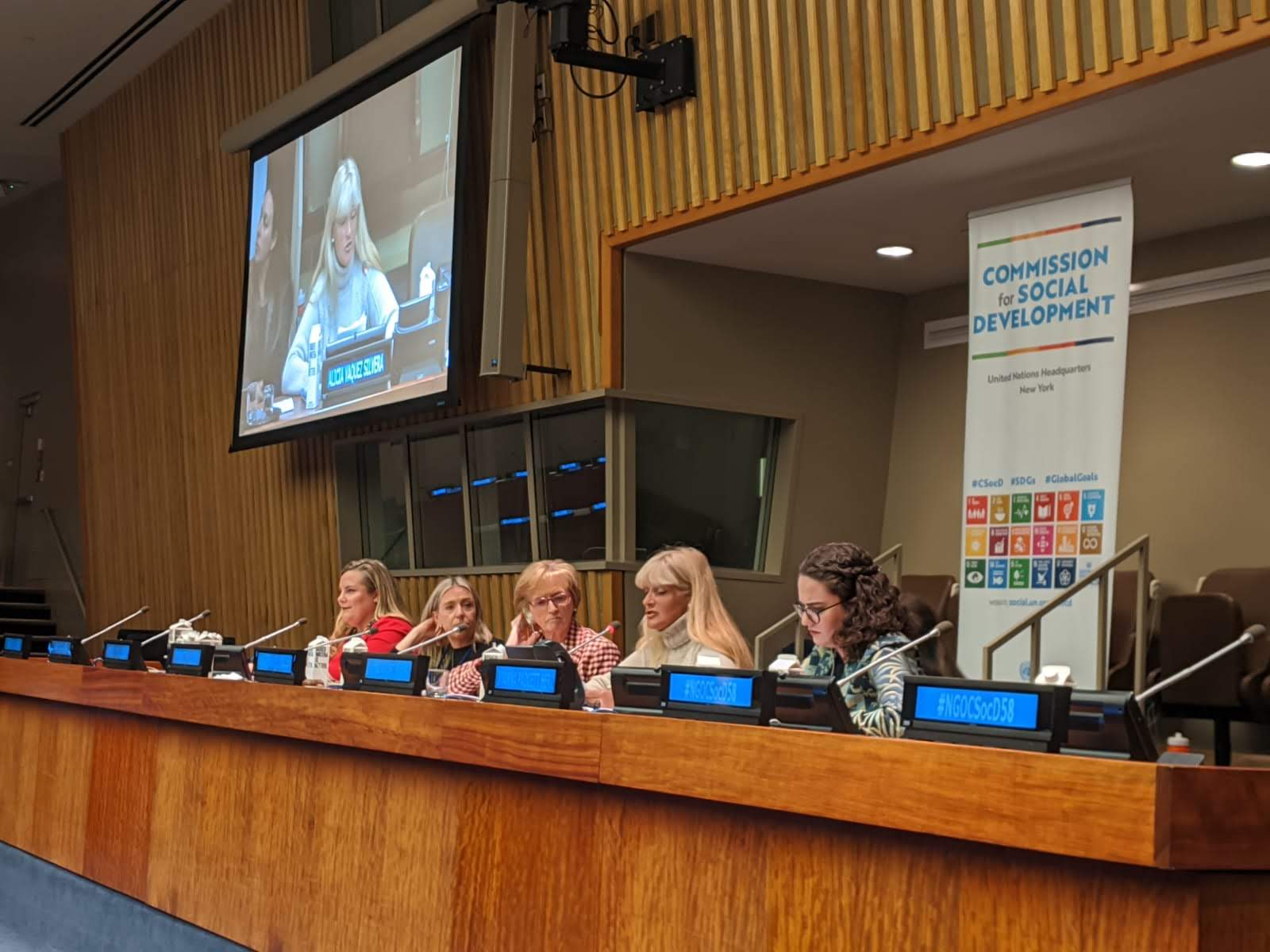Homelessness entered the UN Agenda: The Latin American voice present through the Red Calle Project

The Red Calle Project participated in the 58th Session of the United Nations Commission for Social Development, which took place in New York City from 9 to 20 February 2020, and addressed the issue of homelessness and affordable housing. There, the UN adopted the first resolution that defines homelessness and urges member states to standardise their methods of measuring and collecting data that will allow them to assess the true magnitude of this global issue. For the first time in its 75-year history, the UN takes into account homelessness as a fundamental political issue.
The efforts of the NGO Working Group to eradicate Homelessness succeeded in influencing the inclusion of this issue as the priority theme of the 58th session. Also, together with its partners - Alianza Famvin, DePaul International and the IGlobal Institute of Homelessness (IGH) - made possible the participation of Yanella Posente (Coordinator of the Red Calle Project) and Alicia Vázquez (from the NITEP - Ni Todo Está Perdido collective in Uruguay) who, in addition to representing their country, presented the challenges and achievements of the Red Calle Latinoamericana. In the governmental panel, the Project Coordinator spoke along with Dame Louise Casey, Co-founder and President of the IGH, Hanta Fida Cyrille Klein, Counsellor of the Permanent Mission of the Republic of Madagascar to the United Nations and Indu Prakash Singh, Facilitator of CityMakers Mission International in New Delhi, India. In addition, Alicia Vázquez provided her vision of the theme in the "Nosotros contamos" (We Count) panel along with other people who have experienced homelessness.
The resolution adopted at the end of the 58th session of the Commission for Social Development, establishes that member states should adopt and harmonise the conceptualisation, measurement and collection of data. It also reinforces the role of the UN Statistical Commission and underlines "the need for joint efforts to identify people experiencing homelessness".
In this sense, homelessness is seen as a global issue that affects various age groups and diverse economic, social and cultural starting situations. It has structural causes, in relation to multiple inequalities. It is understood as a cause as well as a consequence of poverty. This leads a number of countries to develop comprehensive policies aimed at promoting equality, inclusion, and human dignity for all people.
This statement is key in calling Member States to action, as they are responsible for ending homelessness with the support of local and international organisations, civil society and the private sector in order to achieve the goals proposed in the Agenda 2030. They are also called upon to work together with the United Nations and the Academy.
As a result of this session, Member States have reaffirmed their commitment to adopt a complex series of measures that involve urgent multi-sectoral action, starting with the adoption of a finalised definition of the phenomenon, agreeing on a form of global measurement of it, as well as on policies and programmes that promote equality and inclusion.
This gathering has not only become a historical fact for the international community, but is in itself a crucial step to make progress towards SDG 1 - No Poverty and SDG 10 - Reduced inequalities. This declaration by the Commission will be submitted for validation to the UN General Assembly next September.







